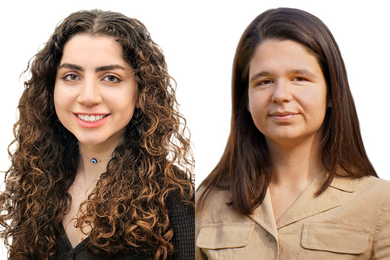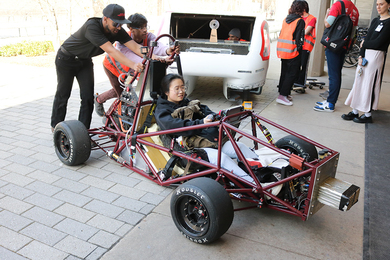Dean for Undergraduate Education Robert P. Redwine presented the case for a review of the undergraduate educational commons at MIT--that is, a review of the General Institute Requirements (GIRs) and other aspects of the shared undergraduate experience--at the faculty meeting on Sept. 17.
The review would be conducted by a new task force that would build on the work begun by the Task Force on Student Life and Learning. The new panel, yet to be appointed, would interact regularly with the MIT community in general and with relevant faculty committees, particularly the Committee on the Undergraduate Program.
President Charles M. Vest described the proposed review of the Institute's core requirements as part of a "sacred trust, a social contract we have to provide the mechanisms for the intellectual development and growth of students here."
The review should consider students' changing intellectual and social interests, concerns within the School of Engineering about the current scope and content of the GIRs, and a general desire to broaden the exposure of our newest students to the range of options available to them at MIT, Redwine said.
A "strong consensus that there must continue to be a deep, common grounding in science and math" emerged from a daylong meeting in late August involving a number of faculty and senior academic administrators, he said.
Other goals to be kept in mind during the review include emphasizing interdisciplinary, contextually based education; preserving students' excitement and enthusiasm; and enhancing the HASS (humanities, arts and social sciences) educational experience, Redwine said.
"We are not trying to fix something that is badly broken. It is very clear we must do everything we can to provide the best educational experience to the extraordinary students we welcome to our community," Redwine told the faculty.
The undergraduates now at MIT are the "best we've ever had," he said. "They're more diverse, with broader interests. Five years ago, there were 100 clubs and student activities. Now there are 500. Most universities are seeing the same thing. We're learning more about how best to teach these students."
In presenting plans for the review of the educational commons, Redwine noted questions and concerns including: How can we broaden students' exposure to engineering during their first year? To what extent should the GIRs promote cultural literacy and to what extent should they be a foundation for further study in a major? How can we help students explore the full range of opportunities at MIT?
"It's an important moment to step back and reflect on our education and to look ahead as well," Vest said. "We have a new generation of faculty with new ideas. Now we will have the benefit of their thinking."
A version of this article appeared in MIT Tech Talk on September 24, 2003.





